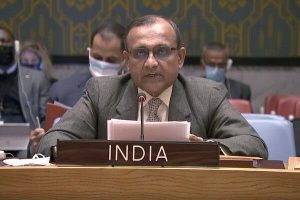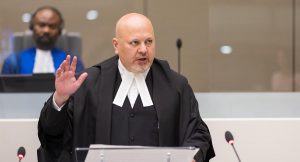By: Rohan Bhattacharjee
Impunity Watch News Staff Writer
India’s abstention on the United Nations Security Council (UNSC) draft-resolution vote on the condemnation of Russia’s blatant and unilateral aggression on Ukrainian territory, is deeply disappointing.

Close alignment with Russia has been an integral part of India’s post-independent foreign policy. Russian contribution to Indian scientific, economic, and defense development, including military support on key foreign policy events such as the Bangladesh liberation war in 1971, are unparalleled. The shift of the global order since the 90s however, and the rapidly evolving global geo-political developments signifying increasing polarization between free societies led by the U.S on one side and authoritarian states such as Russia and China on the other, amidst intensifying cultural and people-to-people ties between India and the western world, require an urgent rethinking of India’s ‘strategic neutrality’ policy.
In 2020, as China entered Indian territory in Ladakh, killing over 20 Indian soldiers, Indian diplomats travelled to capitals around the world, frantically asking leaders to condemn China’s unilateral actions violating India’s territorial integrity and sovereignty.
The same diplomats, two years later, were instructed to abstain from condemning Russia’s aggression against Ukraine in the UN Security Council in demonstration of its ‘non-alignment’ policy. India’s isolation on the international stage was manifest as not a single member of the UN Security Council voted against the resolution except for Russia.
This balancing act, a legacy of the Non-Alignment Movement (NAM), cannot be more absurd in today’s global scenario. Besides exposing India’s hypocrisy, it showcases that India’s concerns over the principles of respecting the territorial sovereignty of states are only seasonal and arise only at a convenient moment when its own interests are at stake. It is inapplicable to tyrants and dictators like Putin. Such a transactional approach in foreign policy does not bode well for India’s future and its image as a responsible global power.
Two distinct worlds are fast emerging in areas of artificial intelligence, machine learning, and finance – dominated by the U.S-led free world on one side and authoritarian states such as Russia and China on the other. Because of the geo-political rivalry, the two systems continue to become ever more parallel and distant. For India to continue with its transactional approach towards world affairs, continuing its purchase of Russian weapons systems on one hand, making use of American-designed defense software on the other – while the U.S-led alliance continues to place more crippling sanctions on Russia, it will become more difficult for India to enjoy the best of both worlds for which it is time that it finally make a choice.
India has enormous scope of gaining immensely from the west than it can gain from authoritarian states such as Russia or China. The sheer size of the American economy and the western world’s unparalleled appetite for progress in basic research, science, and technology, fueled by free-market capitalism and a free and open society promoting honest intellectual discourse, will benefit India much more in the long run than short-term transactional relationships. The U.S-led western alliance, with its convergence with India on democratic values and key national security priorities, are natural partners for India in the long-run.
India also can tap into the influence of its extremely large, well-integrated, and successfully placed diaspora in the western societies to influence government policy. The Indian diaspora in the U.S alone, for instance, numbers over 4.2 million, compared to a paltry 14,000 in Russia. Members of the diaspora are situated in the highest echelons of government and industry, providing an opportunity for the Indian government to directly influence decision making processes favoring its agendas.
For these reasons, India must take a bold stance against authoritarian regimes in the world to establish itself as a responsible global power and a leader of the free world, bin its policy of strategic neutrality, and realign more concertedly with the western-led alliance of democracies. It should begin by condemning Vladimir Putin’s blatantly illegal actions in Ukraine.



